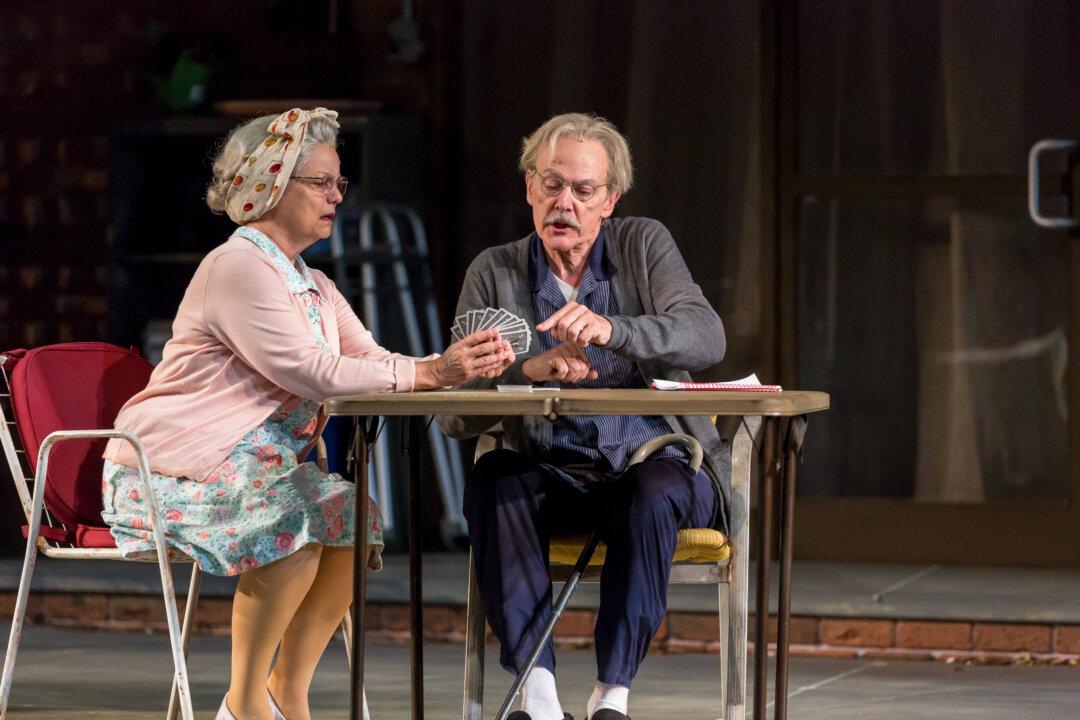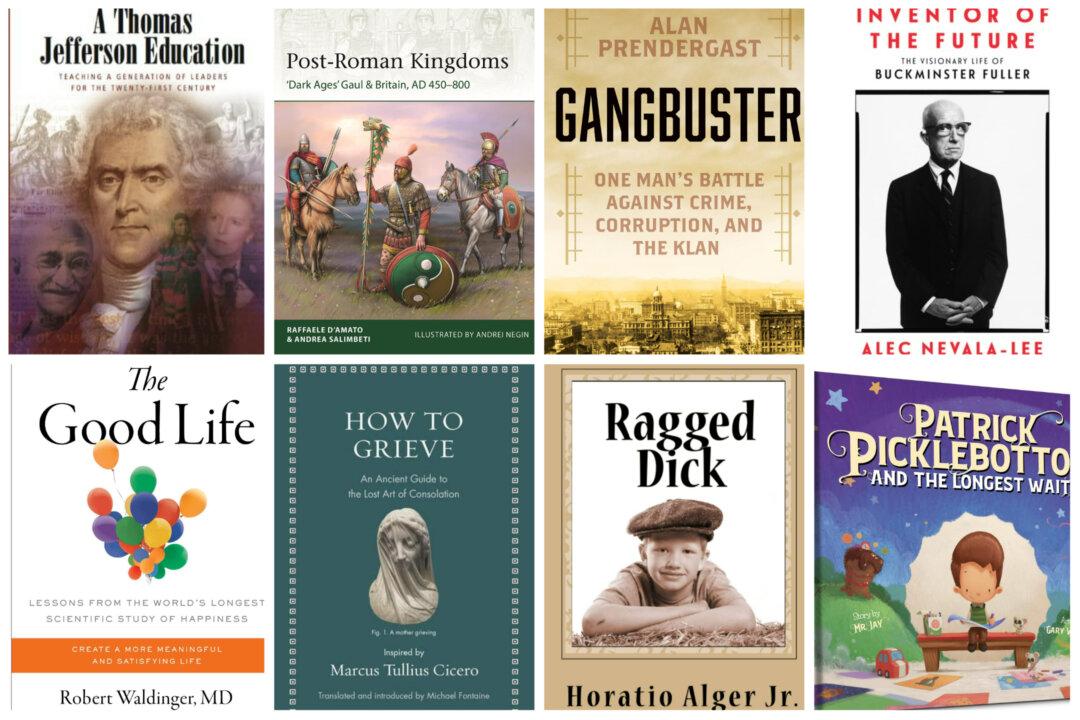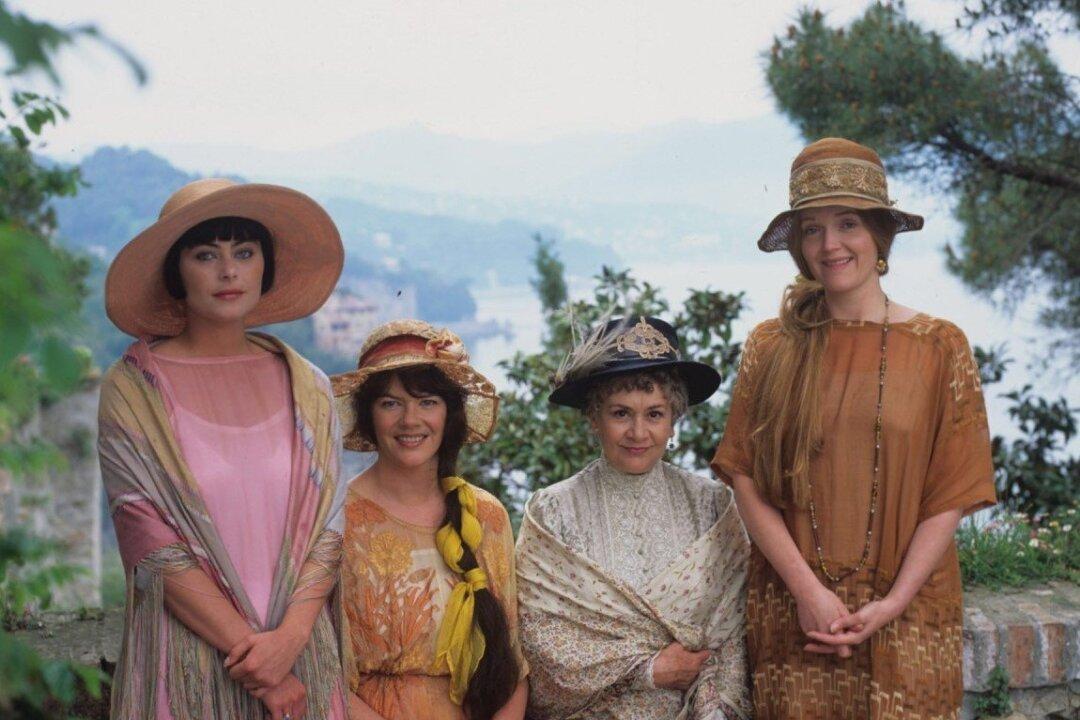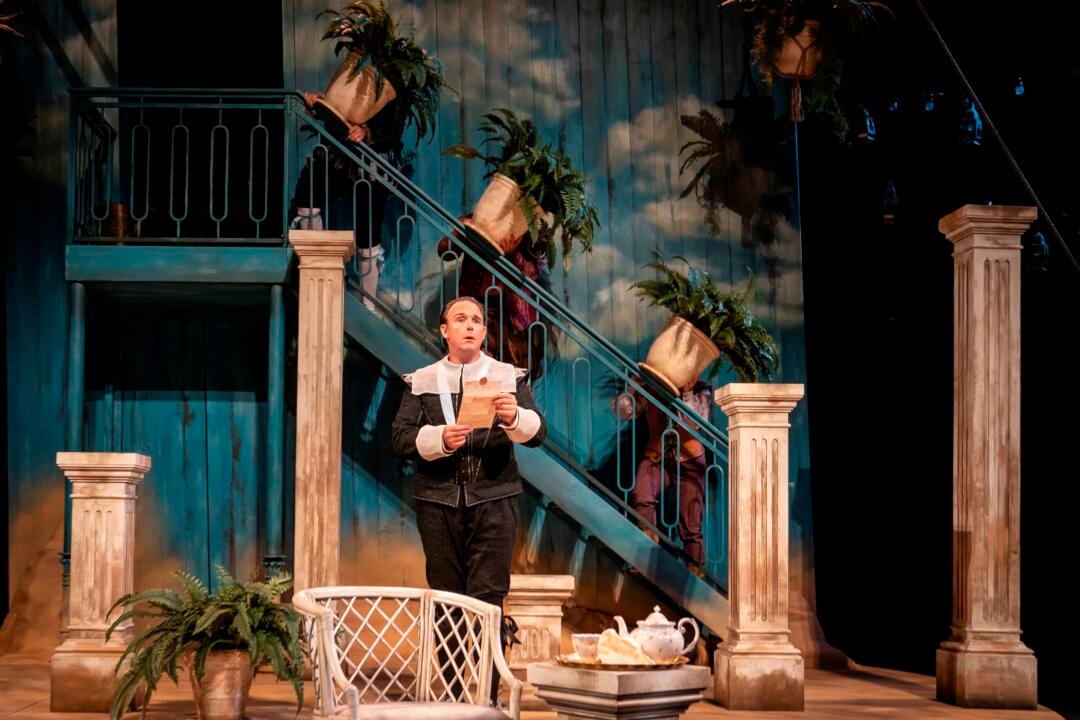OAKBROOK, Ill.—There’s nothing inspiring about D. L. Coburn’s 1976 Pulitzer Prize-winning (1978) drama “The Gin Game.” But Drury Lane’s production does remind us that, at the end of a long life, self-reckoning is needed. Blaming bad luck for our failures can only lead to despair.
The Bentley Nursing Home is a low-end facility, with unwanted items both inside and out. Just off the porch rests an old hose, a broken folding chair, and a three-quarter size Santa, the old-fashioned kind that plugs in and lights up. Inside, staff is condescending to patients. Steals from them, too. The residents are glassy-eyed and unresponsive or taken up with planning their own funerals. As resident Weller Martin (John Reeger) puts it, the home is “a warehouse for the intellectually and emotionally dead.”
Pastimes consist of visits from local church choirs, piped-in music, or for those who still possess their wits, games on the seldomly used sun porch. Of course, there is always the chance that family will stop by.
But family doesn’t show up for Weller or for new resident Fonsia Dorsey (Paula Scrofano) on visitor’s day. So Weller induces Fonsia to play a game of gin rummy. She is happy to learn the game and oblige Weller, one of the few residents able to hold a conversation about something other than aches and pains, and he is happy to play the game that for him is a competitive sport.
As the games progress, the two chat and get acquainted. Fonsia’s son and his family live in Colorado so they can’t visit easily. Weller divorced years ago and his wife remarried; hence he rarely saw his kids. And then he had the misfortune of losing his business to his no-good partners.
But, gradually, as Fonsia shows a dazzling streak of beginner’s luck, the pleasantries subside. Weller cannot bear her winning, and, on Fonsia’s part, she finds Weller’s habit of cursing irritating and his temper frightening.






